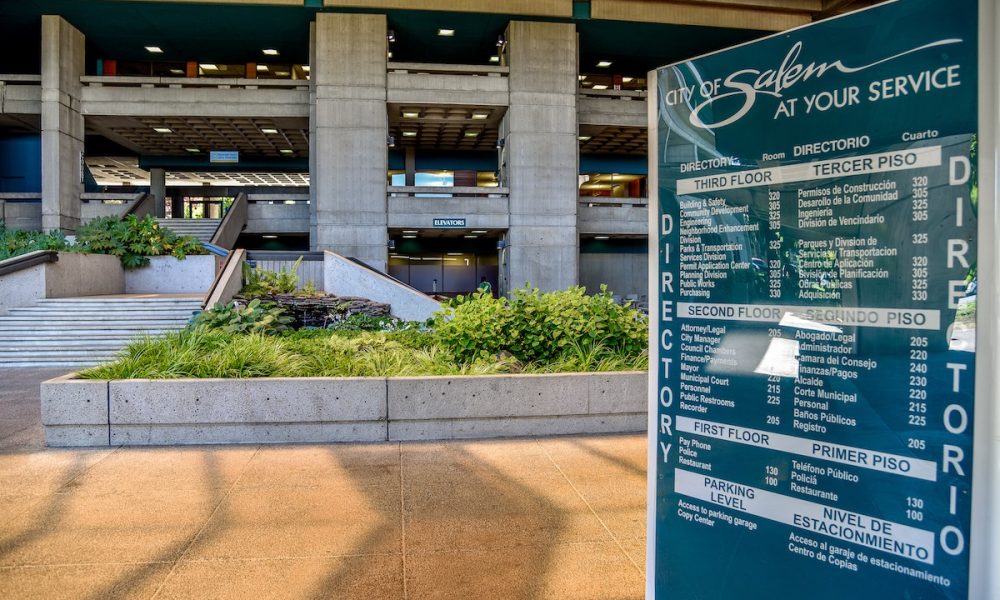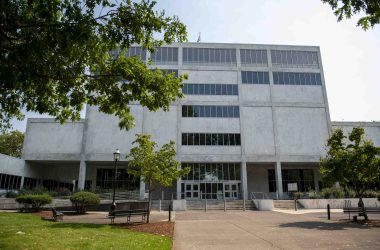
Kids and homeless people would lose Salem city help under budget cuts disclosed Friday.
City Manager Steve Powers proposed a budget for the next fiscal year, aiming to head-off forecasts that say Salem’s general fund – which pays for parks, police, firefighters and more – could be short $6 to $8 million by 2023.
Powers proposes the city halve the budget for the Homeless Rental Assistance Program and cut entirely its pledge to fund a downtown sobering center.
He also recommends cutting the drug education program DARE., which cost $150,000 a year; and an after-school youth and teen development program that cost $176,640.
READ: The entire proposed budget for fiscal year 2019-20.
The rental assistance program – also known as HRAP – could see its city funding drop $1.4 million to $700,000 the next fiscal year. Through grants and funding from Salem Health, its total budget is about $2.3 million. HRAP’s biggest functions are to pay up to 12 months of rent for people who are chronically homeless and to pay for case management.
Nobody in the program would lose their residence, said Powers, but the reduced budget will limit the number of people who can enroll in the future.
But the two-year-old program has only spent about $700,000 of the city’s contribution a year, and has carried the unspent money into the following year, according to Nicole Utz, acting administrator for the Salem Housing Authority. Powers said the city didn’t spend what it had because not enough landlords participated in the rent program.
“It’s really to right-size the program to the available housing,” said Powers. “Anyone that’s currently housed would stay housed and we’ll work with people to get them into housing.”
Today there are 133 people in the program, Utz said, and six people waiting. How that number could look in the future remains to be seen.
“We can only make sure we bring on those who we can continue to help, with the funding that’s received,” she said. “Of course, we’re always looking for extra grants.”
Powers’ proposal would also save the general fund by distancing itself from the sobering center. The city has earmarked $250,000 since last year for the center, which would take in drunk or intoxicated people that police would otherwise jail or take to the emergency room.
Plans for the sobering center have stalled, however, as costs have skyrocketed. Salem, Marion County and Salem Health have talked about jointly funding the center’s operating costs of $450,000 a year – but latest estimates say it could cost closer to $1 million.
Powers’ proposal would also cut the equivalent of nearly nine full-time jobs. He said most of those jobs are currently vacant, but there could be layoffs. He said the positions are across departments.
Powers’ proposal doesn’t immediately bring the general fund in balance.
The proposal says the general fund next year would spent $138 million, a 1.2 percent increase from 2018, out of its total $148.6 million budget that includes revenues and reserves.
Revenues alone account for $128.8 million — about $10 million short of expenses. Powers said this budget is a step in a years-long process to prevent expenses from eventually eclipsing the total budget.
“I think it’s going to be a multi-year effort to get into alignment,” Powers said. “Revenue is going to be a piece of that. … Having additional revenue really is, in my judgment, is a vital piece toward that alignment.”
Salem City Council is expected to soon discuss new revenue generating proposals for the general fund, which include an operating fee – paid for by residents on their utilities bills – or an employee-paid payroll tax.
The city’s budget committee is expected to start meeting in May and Salem City Council is expected to formally adopt a budget in June.
Have a tip? Contact reporter Troy Brynelson at 503-575-9930, [email protected] or @TroyWB.









